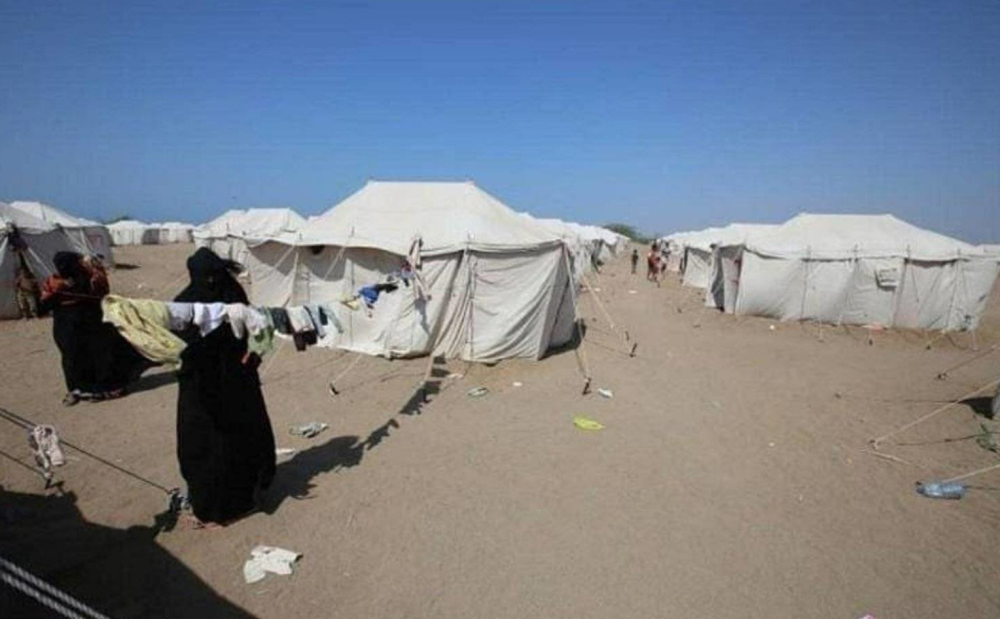Norwegian Refugee Council Urges Inclusion of Plight of Displaced Yemenis in Peace Talks


The Norwegian Refugee Council (NRC) has urged the inclusion of the issue of three million displaced persons in Yemen in the upcoming peace talks, aiming for permanent solutions for their plight.
The Council warned that Yemen and humanitarian partners still have a long way to go to find genuine and lasting alternatives to displacement for the millions of people who have been forced to flee within the country.
It noted that a reduction in violence due to the UN-sponsored ceasefire since April 2022 has created a window of opportunity for diplomacy.
However, it indicated that the international community must find opportunities to secure durable solutions for the 4.5 million displaced persons.
The report described the situation in Yemen as "at a crossroads," noting that although the formal UN-brokered truce lapsed in October 2022, "truce-like conditions" have continued.
Fighting has diminished, there have been fewer civilian casualties, the conflict has been forcing fewer people to flee, and there is increasing international support for political negotiations toward peace.
However, it said that there is still a long way to go before finding genuine and lasting alternatives for millions of people who were forced to flee their areas of origin.
It pointed out that hopes for a new era of calm have grown, but the benefits of peace are only sometimes balanced.
The communities most severely affected by conflict are often left behind, and in Yemen, the conditions facing them remain grim.
- Need for concurrent support
The NRC asserted that the humanitarian community must do more to avoid a false sense of safety and opportunity among communities.
According to its assessment, the Council saw that despite the increased interest in returning home since the truce was enacted, the people attempting to do so remain a minority.
It indicated that the international community must develop a framework at the level of Yemen to track people who are trying to return, clear the areas of mines, and support the reconstruction of demolished homes.
It highlights the need for concurrent and coordinated humanitarian support and longer-term development and peace-building assistance, according to the Council.
Yemen does not have a systematic framework to track attempted returns, a lack of access to areas of origin, and limited funding. It restricts agencies' ability to assist IDPs who have tried to return.
As a result, humanitarian workers do not fully understand where displaced families are returning to or know about the conditions there.
Aid organizations must figure out how to harness this information to understand better where people are returning to, what their needs are, and what protection risks they face.
The Council said that the Yemeni government and Houthis should grant aid agencies full access to IDPs, host communities, and the areas of origin that people are returning to.
They should ensure that both aid responses and strategies for durable solutions are based on the expressed needs and intentions of the communities they are designed to support.
The Council called on the United Nations to develop a framework to track return processes and attempts and coordinate a clear understanding of not only displaced people's intentions but also whether lived experiences inform those intentions, that is, attempts to integrate with host communities, relocate or return to their areas of origin.
It asserted that the Office of the Special Envoy of the Secretary-General for Yemen (OSESGY) should do more to base peace talks on the lived experiences of conflict-affected communities, specifically those living in displacement.
It should be noted that a negotiated peace agreement or prolonged pause in conflict may have unintended negative consequences for displaced people.
It should mitigate and monitor those consequences and raise them with parties to the conflict.
The Office of the Special Adviser on Solutions to Internal Displacement should ensure there continues to be space for providing humanitarian assistance and protection to populations that need them.
It should support the government and engage development agencies in seeking durable solutions
- Providing adequate financing
International non-governmental organizations in Yemen should embed a durable solutions lens in all programming.
They should take into account people's lived experiences and intentions and make sure aid meets their needs and aspirations.
The donor community should ensure funding enables aid agencies to continue to support displacement-affected communities but is also flexible enough to respond to displaced people's intentions and movements.
It should include flexible, multi-year funding streams that support nexus approaches.
According to the Council, humanitarian agencies must have sustained, principled access to the areas people are returning to, noting that without access, aid agencies cannot collect data or engage with communities.
Access is necessary for aid workers to develop and deliver accountable and appropriate responses that will lead to durable solutions.
The Norwegian Refugee Council confirmed that people are clearly expressing their increasing interest in returning due to the unprecedented six-month truce, which was a hugely significant step in Yemen's peace process.

Mokha — Yemen is entering a highly sensitive stage as political and military developments accelerate, raising mounting warnings over the resu…

Red Sea — The European naval mission tasked with safeguarding international shipping lanes announced that an Italian frigate operating under…

Paris – The French Ministry of Foreign Affairs issued a statement expressing deep concern over the situation in Yemen, while reaffirming its…